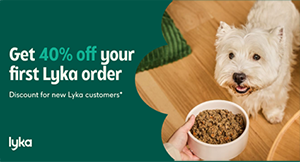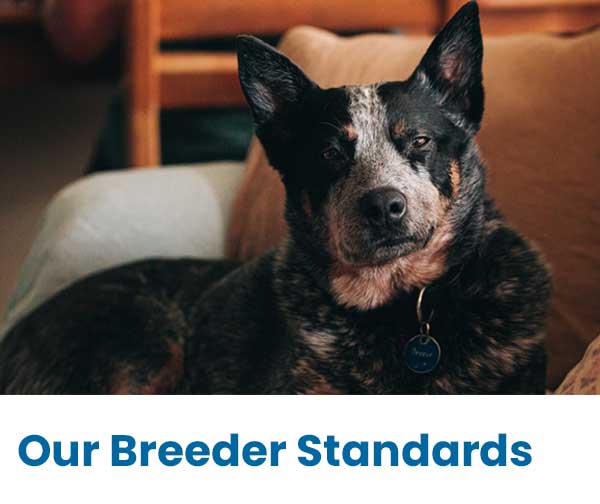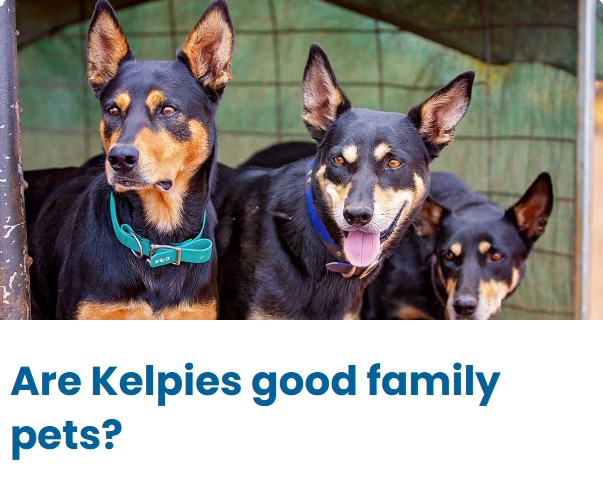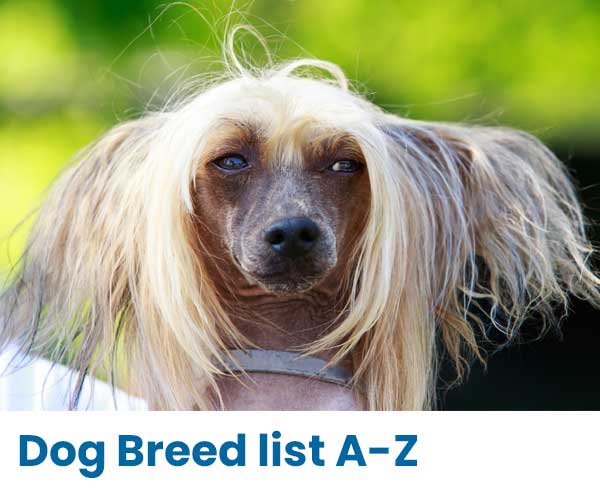Border Collie breed guide
Before anything else the Border Collie is a working dog. The breed is widely regarded as the world's greatest sheepdog and is likely the most widely used working dog today. Border Collies were originally developed in and for the harsh conditions on the Welsh and Scottish borders with England. The land was suitable for little except sheep and with the introduction of sheep grew the need for a suitable herding dog. With the introduction of International Sheepdog Trials in 1906 the outstanding abilities of the Border Collie became well known worldwide and the breed became very much sought after. Particularly those requiring sheep dogs like New Zealand and Australia.
Border Collies are ranked number one in Stanley Cohen's 'The Intelligence of Dogs' and it would be hard to find a breed that is more receptive to training than the Border Collie. They thrive on praise and take on all new tasks with eagerness and a great desire to please. As well as being highly intelligent, Border Collies are extremely energetic, athletic, and have great stamina. They require considerable daily exercise and mental stimulation. As pets, it is critical that they have plenty of play and exercise with humans or other dogs.
Because of this combination of athleticism, intelligence and trainability, the breed is perfect for those wanting to compete in various sports and trials. Border Collies are represented among the leaders at competitive levels - excelling in agility skills, obedience, sheepdog trials and Frisbee (TM). These competitions suit the breed perfectly, Border Collies are highly represented, and they and often win. For those who wish to reach high levels in dog sports, the Border Collie is a gift from heaven.
Provided they get ample exercise and are sufficiently occupied, the Border Collie will get along quite happily with other dogs, and children. This breed can be sensitive and should be very well socialized as a puppy to prevent shyness. To be truly happy, Border Collies need a lot of consistent leadership, extensive daily exercise, and a job to occupy their minds.
This breed lives for serving you day in and day out. They are not ideal pets for people who don't plan to spend a lot of time with them. Border Collies are too intelligent to lie around the house with nothing to do. Do not take on a Border Collie unless you are willing to put many hours a day into keeping them well exercised in both mind and body. Without adequate stimulation and exercise border collies can develop neurotic behaviors. When not challenged daily they can and will become destructive and known for chewing holes in walls and biting and chewing on furniture out of boredom.
Physical characteristics
The Border Collie is a medium sized dog. The body is slightly longer than it is tall. The oval eyes are set well apart and brown in colour, except in merles where one or more eyes may be blue. The medium sized ears are set well apart, either carried erect or semi erect. The medium sized tail is set low reaching at least to the hock, raising somewhat when the dog is excited. The double coat is weather resistant, dense and close-fitting. There are two coat varieties: a short, sleek coat (about 1 inch (2.5 cm.) long) and a coarse, rough coat (about 3 inches (7.6 cm.) long). The Australian recognised coat colours come in black and white, tri-colour (black/white/tan), red & white, chocolate and white, blue and white blue merle (see more on colour below). The longer haired variety should have a mane and tail brush. The hair on the face, ears and front legs is always short and sleek. Since Border Collies are bred for working ability and intelligence rather than for physical beauty, conformation varies widely.
Grooming
The Border Collie needs regular combing and brushing to keep the coat gleaming and to prevent tangles and dread-locks.Shaving a coat can impact a Border Collies ability to regulate their temperature and often a coat will not grow back the same therefore shaving your Border Collie is not recommended and regular grooming should suffice. Extra care is needed when the soft, dense undercoat is shedding which for males is generally once/twice a year and females before each breeding cycle. Regular warm hydro-bathes and blow drying assist during the shedding period and keep the coat clean and healthy. Check the ears and coat regularly for ticks. This breed is an average shedder.
What is the average price for a Border Collie Puppy?
In recent years there has been an increase in pet owners wanting colour variations and with that a rise in the number of breeders catering to this demand and breeding solely for the colour market. Border Collie puppies are sometimes advertised as certain 'rare' colours. In reality - no colour is 'rare', and these puppies should not be sold at a higher price than a non-rare or more common colour. While some breeders charge up to double for a coloured border collie compared to their black/white border collies, good breeders do not charge any more for colour than they do for black/white nor do they charge more for females pups over males or vice versa. The average price from an ethical breeder for a quality bred puppy from fully health tested parents should be between $2800 - $3500.
Problems can arise when multi-coloured litters are the aim of a breeding program because dogs of better quality in other ways in terms of structure and conformation, are overlooked because they may not carry the desired colour consistently. Avoiding these quality animals may be a concern for the future of the breed because the structure and conformation of the coloured Border Collie cannot be improved if only lower class dogs are consistently being used in a breeding program.
Some breeders have a genuine colour preference and prefer something different to the "common" black/white border collie. The more ethical, responsible breeders still breed quality animals by not limiting their options by choosing to breed for colour alone. If you are looking for a coloured border collie puppy, these are breeders you should seek out. Regardless of a breeders objectives, health testing should be an integral part and parcel of a breeding program.
Border Collie Colour Variations
Traditional colours recognised by the breed were:
⢠Black/white
⢠Blue/White (or dilute)
⢠Red/White
⢠Chocolate White
⢠(Black) Tricolour - Black/white/tan
⢠Blue Merle
However recently the breed standard was updated to ''a variety of colours permissible'' and now the numerous other known Border Collie colours available are recognised in Australia. White should never predominate.
Other colours include:
⢠Chocolate Tricolour (chocolate, white, tan)
⢠Lilac/White (dilute chocolate - by combining blue/white and chocolate white)
⢠Chocolate Merle (Chocolate x merle)
⢠Slate Merle
⢠Sable/White, Shaded Sable, Seal/white - Sable/seal is a coat pattern. The expression is based on many genes working together
⢠Sable/Merle - Crossing dogs carrying both sable and merle coat patterns
⢠Blue Tricolour (Blue, white, tan)
⢠Champagne, Caramel, Blonde, Wheaten and White - Different terms for red/white border collies by those who don't know the breed standard or are trying to upmarket the dog by giving it a flashy name. Red/white comes in a variety of shades from a pale yellow through to a dark rich rust.
To learn more about the breed standard visit ANKC - Border Collies
Please see this link - Bryning Border Collies - Colours a kennel in the UK (where these colours ARE recognised) for a summary of the various colours and their genetic composition.
Thanks to Tracie Thompson of Mystiqview Border Collies, and Letchimi Wright - Bordermojo Border Collies for contributing to this information.
Check listings for Puppies for sale links to our breeders below to go to their profile page. You can also search for Responsible Border Collie Breeders by location.
- Border Collie breeders Sydney
- Border Collie breeders Melbourne
- Border Collie breeders Brisbane
- Border Collie breeders Adelaide
- Border Collie breeders Perth
- Border Collie breeders Darwin
- Border Collie breeders Canberra
- Border Collie breeders Hobart
- Border Collie breeders Gold Coast
- Border Collie breeders Townsville
Potential health issues in Border Collies:
There are a number of hereditary diseases that can be found in Border Collies. The breed can be prone to epilepsy, hip and elbow dysplasia, and deafness. Genetic Diseases include, Collie Eye Anolomy (CEA),Ceroid Lipofuscinosis (CL) Trapped Neutrophil Syndrome (TNS), and Canine Hip Dysplasia. Fortunately the incidence of these diseases amongst the Border Collie population is small.
Good ethical breeders will DNA test their breeding stock so that no puppies are affected by any of these diseases and obtain hip/elbow X-ray and score, and complete the relevant health tests as recommended by the breed clubs. It should be noted that NONE of these tests are compulsory, but reputable breeders will do whatever tests are available to them to ensure they are breeding healthy, quality animals.
When choosing a puppy, please ensure that the DNA status of your puppy is given to you by the breeder. The DNA status of the sire and dam should be fully understood by the breeder, and copies of appropriate certificates obtained. Copies of the sire and dam DNA status should be made available to puppy buyers. The incidence of these is small but can occur in the breed. Source Border Collie Club of NSW
Hip Dysplasia (HD) - Canine hip dysplasia stems from abnormal development of the hip joint; looseness in the joint allows excessive movement which can cause arthritis, especially in larger breeds. As a light agile breed, Border Collies are not overly prone to joint problems, however HD can occur. It is responsible practice to hip screen breeding animals and by selecting the best scores, there should be continual improvement in the breed's hips. Hip dysplasia is a multi-genetic inherited trait, with environmental factors playing an important part. During the first year of life, puppies should not be over fed, over exercised or allowed to jump from anything but the smallest height as this can adversely affect their growing joints.
Elbow Dyslpasia (ED) - Research suggests ED is largely inherited, primarily affecting medium to large breeds. There's no evidence for a link between HD and ED, so a dog diagnosed with HD will not necessarily have ED or vice versa. It is noted however, that they do both occur in rapidly growing breeds with an inherited predisposition for either condition. The incidence of ED in Border Collies is low. Where it does occur, typically, both elbows are affected.
If you are a small scale ANKC registered breeder and would like to be listed here, just contact us or follow a few simple steps to add your details yourself.
We welcome helpful comments and contributions to information about this breed by email
Did you know Border Collies can hypnotize sheep?But, are they the best breed ever? Let us know in the comments below!
Posted by Animalist on Friday, 8 January 2016







